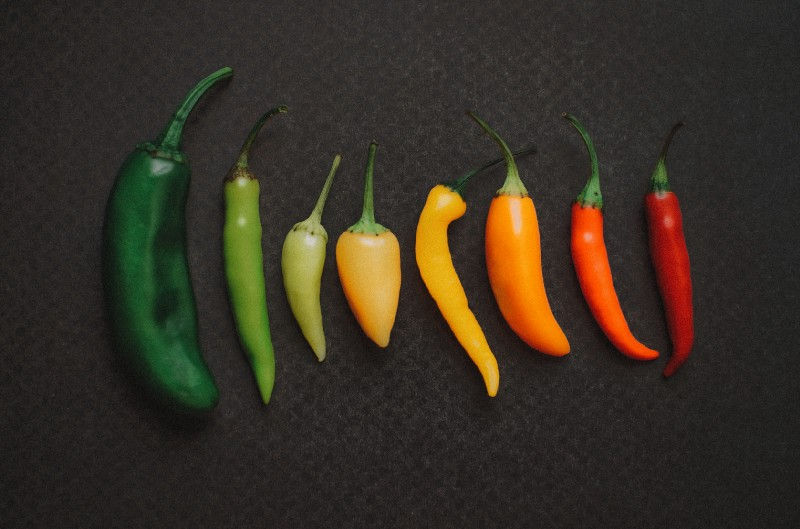Yes, It’s True that the Pepper is a Fruit!
- Jaycee
- Feb 3, 2022
- 2 min read
Updated: Aug 27, 2022
Add this to the list of things I did not know.

Photo by Nikola Johnny Mirkovic on Unsplash
I get a kick out of the things people say or do after having lived on this planet for long as we have. One such thing I find amusing is the phrase, “I was today years old when I learned.” Of course, now I am going to use this expression.
I was today years old when I learned the pepper was a fruit. I was most likely blinded by the fact certain peppers (Ghost) are so blazing hot you can’t think straight. This is the amount of capsaicin within the pepper and the fact our tongues see this as pungent/spicy. The fruit has this oil to thwart any would-be predators, save for birds. Birds are nature’s transporters of the pepper and its seeds.
Another Interesting Fact shared on HOW STUFF WORKS:
The ghost pepper was at one time the hottest pepper in the world, but it’s been surpassed by several others including the current champion, the Carolina Reaper, which measures more than 2 million Scoville units. A pepper known as Pepper X is the unofficial hottest pepper in the world, reportedly measuring 3.2 million Scoville units.

Photo by Viktor Forgacs on Unsplash
Not all peppers are hot; the bell pepper (Green) can be relatively sweet. Keep in mind this pepper is relatively early in its growth cycle. They will generally get even sweeter as they change from green to yellow and finally to red. Again, all the same pepper but at different ripening stages.

So what makes a pepper a fruit? The simple botanical definition states a “fruit” is the seed-bearing product that grows from the ovary of a flowering plant. The fruit is the way of the flower to spread its seeds. A botanical fruit would have at least one seed and grow from the plant’s flower. From this definition alone, peppers are a fruit because they contain tiny seeds within and grow from the flower of the pepper plant.
So by botanical definition, the pepper is a fruit. Given that my stomach heavily influences me, I have always tended to place the pepper in the vegetable category, which is why the “culinary” classification has always been my definition of choice. Here it is as written and described by EUFIC.org.
Culinary speaking, a ‘vegetable’ usually has a tougher texture, tastes blander and often requires cooking in dishes like stews, soups or stir-fries.Whereas, a ‘fruit’ has a soft texture, tends to be either sweet or tart and is often enjoyed raw or in desserts or jams.
The pepper has a thicker wall (tough texture) and is less tasty than fruit, and we generally cook it into dishes. For the most part, it fits the culinary definition but scientifically speaking, it is and will always be a fruit. Tell that to my stomach, though!

Photo by Jason Briscoe on Unsplash





Comments